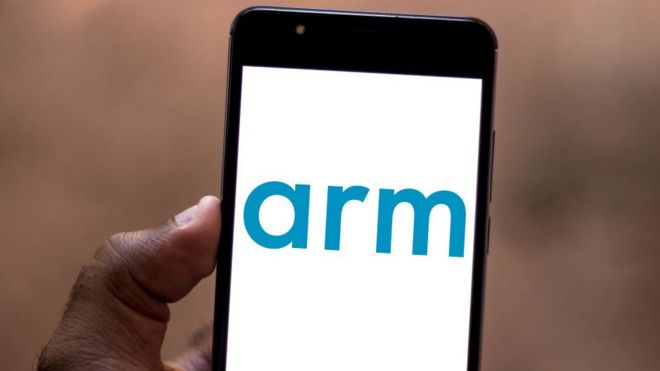Hermann Hauser: ARM deal to Nvidia would be a debacle
 |
| Image Credit: BBC |
In 2016, Softbank wound up getting it. Be that as it may, the Japanese firm is currently appearing in cutting edge converses with the offer it to Nvidia.
Hermann Hauser told the BBC he figured the UK government ought to intercede.
The tech business visionary - who spun off ARM from Acorn Computers in 1990 - says pastors should help make it an autonomous UK business once more.
'Unsatisfactory proprietor'
ARM makes PC chip structures that others at that point tweak to their own finishes. It likewise creates guidance sets, which characterize how programming controls processors.
Pretty much every cutting edge cell phone and the brilliant home contraption is controlled by a chip that depends on either of these advancements.
When Softbank purchased the firm for £24bn not long after the submission to leave the EU in 2016, it was hailed by the administration as a demonstration of positive support in a post-Brexit Britain.
In any case, Mr. Hauser said at the time it was a tragic day for him and for UK innovation.
Four years on, after various large wagers turned out badly for the Japanese firm - strikingly its interest in the common office space business WeWork - SoftBank needs to discard ARM, either returning it to the securities exchange through an offer deal or letting another association get it out and out.
Lately, there have been various reports that Nvidia - which as of late surpassed Intel to turn into the world's most important chip-creator - is quick to get it.
The most recent end of the week in July, I reached Dr. Hauser who spends the UK's winters in New Zealand and stayed there in view of the coronavirus pandemic.
He disclosed to me that an offer of ARM to Nvidia would be a calamity, yet thought it improbable to occur.
This previous end of the week he got back in contact to state the reports presently looked entirely sound and his anxiety had extended.
He clarified that ARM's plan of action - in which all the huge chip-creators permit its advancements - made Nvidia an inadmissible proprietor.
"It's one of the essential suppositions of the ARM plan of action that it can offer to everyone," he clarified.
"The one redeeming quality about Softbank was that it wasn't a chip organization, and held ARM's lack of bias.
"On the off chance that it turns out to be a piece of Nvidia, a large portion of the licensees are contenders of Nvidia, and will obviously then search for a choice to ARM."
While Dr. Hauser cast a ballot against the Softbank bargain in 2016, he says the Japanese firm stayed faithful to its commitments to hold Cambridge as the principal focal point of ARM's examination and to support work there.
He has little confidence in that outstanding the case if Nvidia dominates
"It will get one of the Nvidia divisions, and all the choices will be made in America, no longer in Cambridge."
Be that as it may, the Austrian-conceived financial speculator trusts that can in any case be dodged.
"The incredible open door that the money needs of Softbank present are to bring ARM back home and take it openly, with the help of the British government," he said.
'Not about the cash'
Dr. Hauser added that he might want to see it recorded on both the London and New York Stock Exchanges.
He recognized that an as of now monetarily extended government couldn't be relied upon to give money to the arrangement, however, could in any case urge it to occur.
"It's not about the cash, it's the mechanical technique articulations that the legislature can make," he said.
Dr. Hauser thinks the administration's ongoing move to contribute $500m (£378m) in the satellite firm OneWeb might be an indication that it is set up to mediate when the UK's innovation future is in question.
What's more, he figures the UK's more extensive microchip division ought to be supported, highlighting the accomplishment of Bristol-based Graphcore in planning AI chips.
"[OneWeb was] a solid articulation that the administration is really genuine about the mechanical system," he said.
"Also, if at any time there was a major key prize to be had, it removes the crown from Intel as the main microchip organization on the planet and makes it part of the UK".


No comments